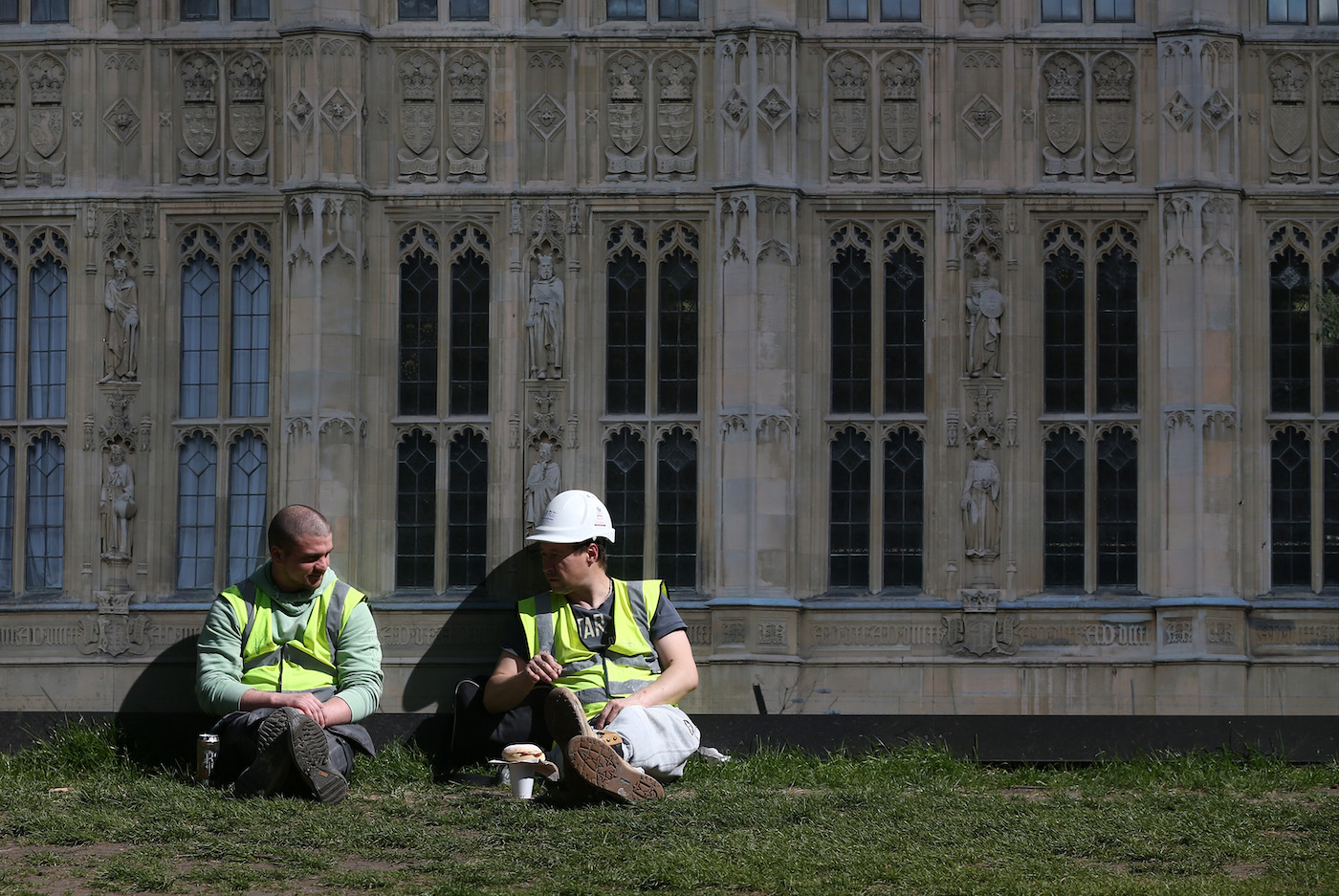Should the UK introduce a maximum working temperature?
Workers will suffer as UK heatwave is forecast to hit 35 degrees next week

A free daily email with the biggest news stories of the day – and the best features from TheWeek.com
You are now subscribed
Your newsletter sign-up was successful
Many parts of the UK are currently experiencing a sustained heatwave, with predictions of even hotter temperatures to come.
The Met Office has issued an amber warning for heat for much of the country on Monday when temperatures could reach a sweltering 35C. It said there would need to be “substantial changes in working practices and daily routines” as the soaring heat poses a potential risk to life, said the Daily Mail.
However, stopping work because of temperature extremes is not that simple. Currently there is nothing in UK law that states a maximum (or minimum) working temperature, but the Health and Safety Executive (HSE), the national regulator for workplace conditions, says temperatures must be “reasonable” and employers must ensure there is a supply of “clean and fresh air”.
The Week
Escape your echo chamber. Get the facts behind the news, plus analysis from multiple perspectives.

Sign up for The Week's Free Newsletters
From our morning news briefing to a weekly Good News Newsletter, get the best of The Week delivered directly to your inbox.
From our morning news briefing to a weekly Good News Newsletter, get the best of The Week delivered directly to your inbox.
Unions call for change
The Health and Safety Act states that it's an employer’s duty to ensure the welfare of workers. The HSE recommends several practices for keeping workers safe in hot temperatures, including relaxing formal dress codes, moving desks from hot areas, and changing working hours to cooler times of the day.
Unions though are calling for a legally enforceable limit to working temperatures, something the Trades Union Congress (TUC) described a “major omission”. The TUC is calling for a maximum temperature of 30C for regular indoor work and 27C for strenuous work, although it says employers should act to bring down temperatures if they exceed 24C.
The Unite union said outdoor workers are particularly vulnerable and should be monitored much more closely for signs of exhaustion or heatstroke. They should also be given more frequent rest breaks and somewhere shaded to take them, and if possible they should be allowed to work different hours when the temperature isn’t as high.
What would happen if we all stopped working?
A complete down tools by everyone because of the heat would, of course, bring the economy to a shuddering halt.
A free daily email with the biggest news stories of the day – and the best features from TheWeek.com
While there’s no research specifically into what would happen if a legal heat limit stopped many of us from working, similarly to a bank holiday some parts of the economy would benefit and some would lose out.
The Met Office said the impending hot weather will see more people heading to lakes and rivers, as well as the seaside, which presuming those destinations stayed open, could bring a boost to tourism, hospitality and retail services in surrounding areas. The Centre for Economics and Business Research told The Independent in 2020 that bank holidays on average boost retail sales by 15%, but said in a report this year that each bank holiday overall costs the economy £2.3bn, although it conceded that accurately reporting the impact of each one was “difficult”.
Overall, extreme heatwaves have a detrimental effect on economies, wrote Derek Lemoine, associate professor of economics at the University of Arizona, on The Conversation. He said US research shows in general that economic activity falls as temperatures rise. “Workers are less productive when it’s hotter out,” he said. “As temperatures rise, economies will continue to suffer.”
Richard Windsor is a freelance writer for The Week Digital. He began his journalism career writing about politics and sport while studying at the University of Southampton. He then worked across various football publications before specialising in cycling for almost nine years, covering major races including the Tour de France and interviewing some of the sport’s top riders. He led Cycling Weekly’s digital platforms as editor for seven of those years, helping to transform the publication into the UK’s largest cycling website. He now works as a freelance writer, editor and consultant.
-
 How the FCC’s ‘equal time’ rule works
How the FCC’s ‘equal time’ rule worksIn the Spotlight The law is at the heart of the Colbert-CBS conflict
-
 What is the endgame in the DHS shutdown?
What is the endgame in the DHS shutdown?Today’s Big Question Democrats want to rein in ICE’s immigration crackdown
-
 ‘Poor time management isn’t just an inconvenience’
‘Poor time management isn’t just an inconvenience’Instant Opinion Opinion, comment and editorials of the day
-
 Is the US in a hiring recession?
Is the US in a hiring recession?Today's Big Question The economy is growing. Job openings are not.
-
 Will Trump’s 10% credit card rate limit actually help consumers?
Will Trump’s 10% credit card rate limit actually help consumers?Today's Big Question Banks say they would pull back on credit
-
 Ski town strikers fight rising cost of living
Ski town strikers fight rising cost of livingThe Explainer Telluride is the latest ski resort experiencing a patroller strike
-
 What will the US economy look like in 2026?
What will the US economy look like in 2026?Today’s Big Question Wall Street is bullish, but uncertain
-
 How will China’s $1 trillion trade surplus change the world economy?
How will China’s $1 trillion trade surplus change the world economy?Today’s Big Question Europe may impose its own tariffs
-
 Employees are branching out rather than moving up with career minimalism
Employees are branching out rather than moving up with career minimalismThe explainer From career ladder to lily pad
-
 Who will be the next Fed chair?
Who will be the next Fed chair?Today's Big Question Kevin Hassett appears to be Trump’s pick
-
 Out of office: Microretirement is trending in the workplace
Out of office: Microretirement is trending in the workplaceThe explainer Long vacations are the new way to beat burnout